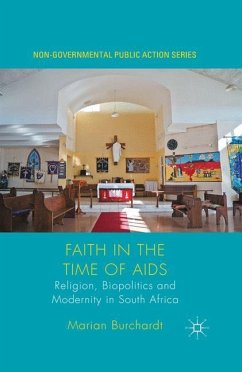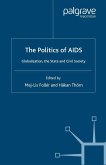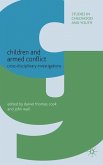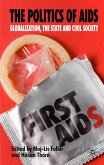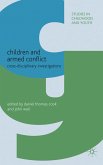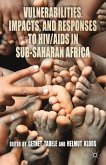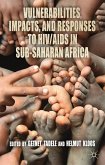This book describes how Christian communities in South Africa have responded to HIV/AIDS and how these responses have affected the lives HIV-positive people, youth and broader communities. Drawing on Foucault and the sociology of knowledge, it explains how religion became influential in reshaping ideas about sexuality, medicine and modernity.
'If there is one book to read about how social science can help us understand the global impact of the HIV epidemic, it is Faith in the Time of Aids. Burchardt masterfully weaves together ethnography from his work with affected communities and churches in South Africa, empirical evidence from around the world, and social theory. He overturns received wisdom about Africa, about the epidemic and about religion in the modern world. Strongly recommended to students of globalization, health and social theory.' -Vinh-Kim Nguyen, École de Santé publique de l'Université de Montréal and Collège d'études mondiales, Canada and France
'This wonderful book uses rich, emotionally-resonant ethnography to explore fundamental aspects of African modernity. It offers a brilliant, paradoxical picture of Christian - especially Pentecostal - and NGO responses to AIDS, as South Africans learn new techniques for transforming the self, and as life, sex, and death are given new meanings.' -Ann Swidler, University of California-Berkely, USA
'A critical, eloquent account of an insuperably complex situation, the unfair distribution of privilege/risk, and the imperative for bold political action. With theoretical and methodological dexterity, Burchardt infuses his analysis with respect for the persons whose lives this book narrates, explicates, and represents.' -Robin Root, City University of New York, USA
'This wonderful book uses rich, emotionally-resonant ethnography to explore fundamental aspects of African modernity. It offers a brilliant, paradoxical picture of Christian - especially Pentecostal - and NGO responses to AIDS, as South Africans learn new techniques for transforming the self, and as life, sex, and death are given new meanings.' -Ann Swidler, University of California-Berkely, USA
'A critical, eloquent account of an insuperably complex situation, the unfair distribution of privilege/risk, and the imperative for bold political action. With theoretical and methodological dexterity, Burchardt infuses his analysis with respect for the persons whose lives this book narrates, explicates, and represents.' -Robin Root, City University of New York, USA

